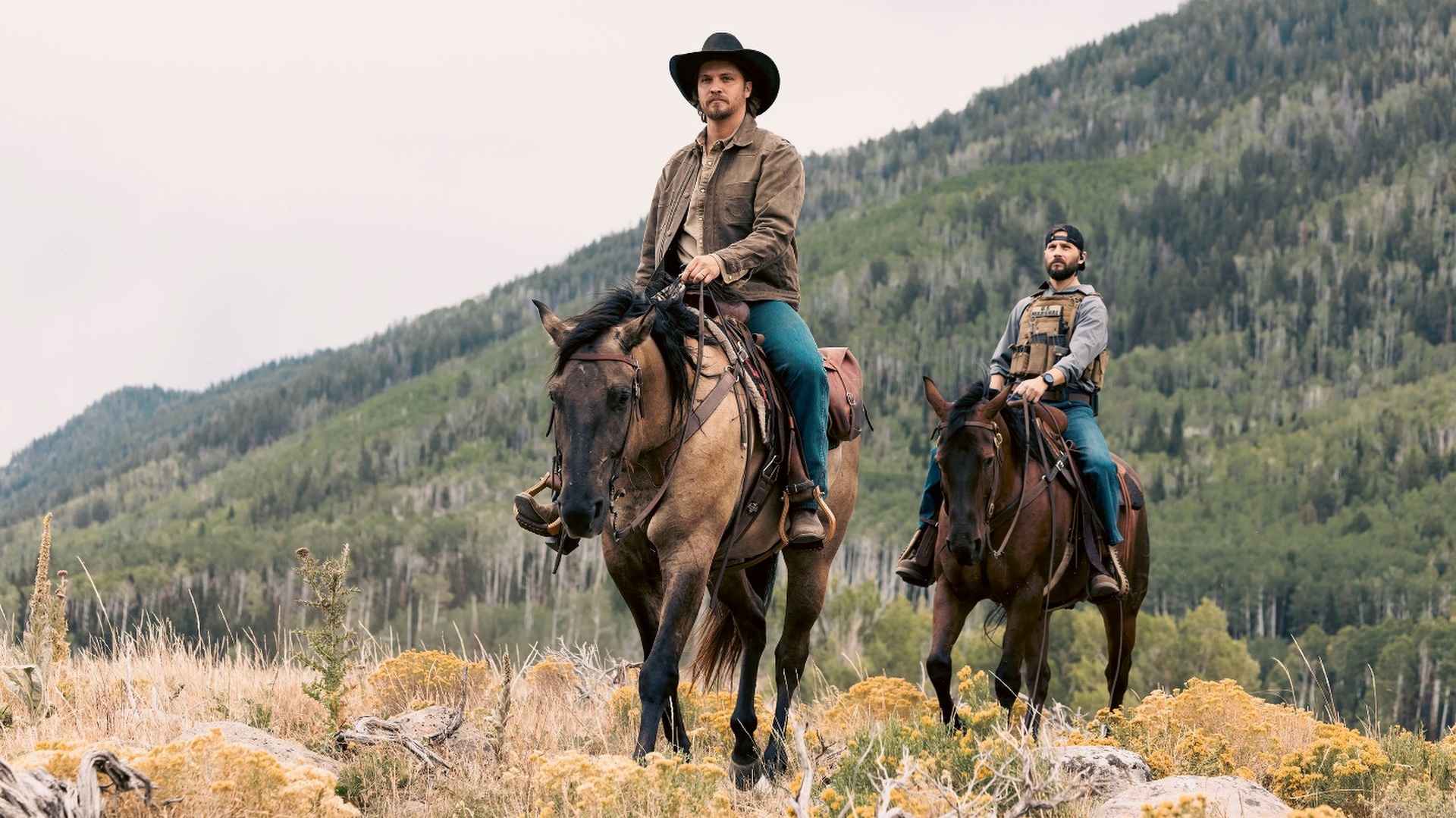'Snowpiercer,' survival and Alex's Season 2 evolution
More than a mini Melanie, Rowan Blanchard's performance has been a Season 2 highlight and the finale cements her power.
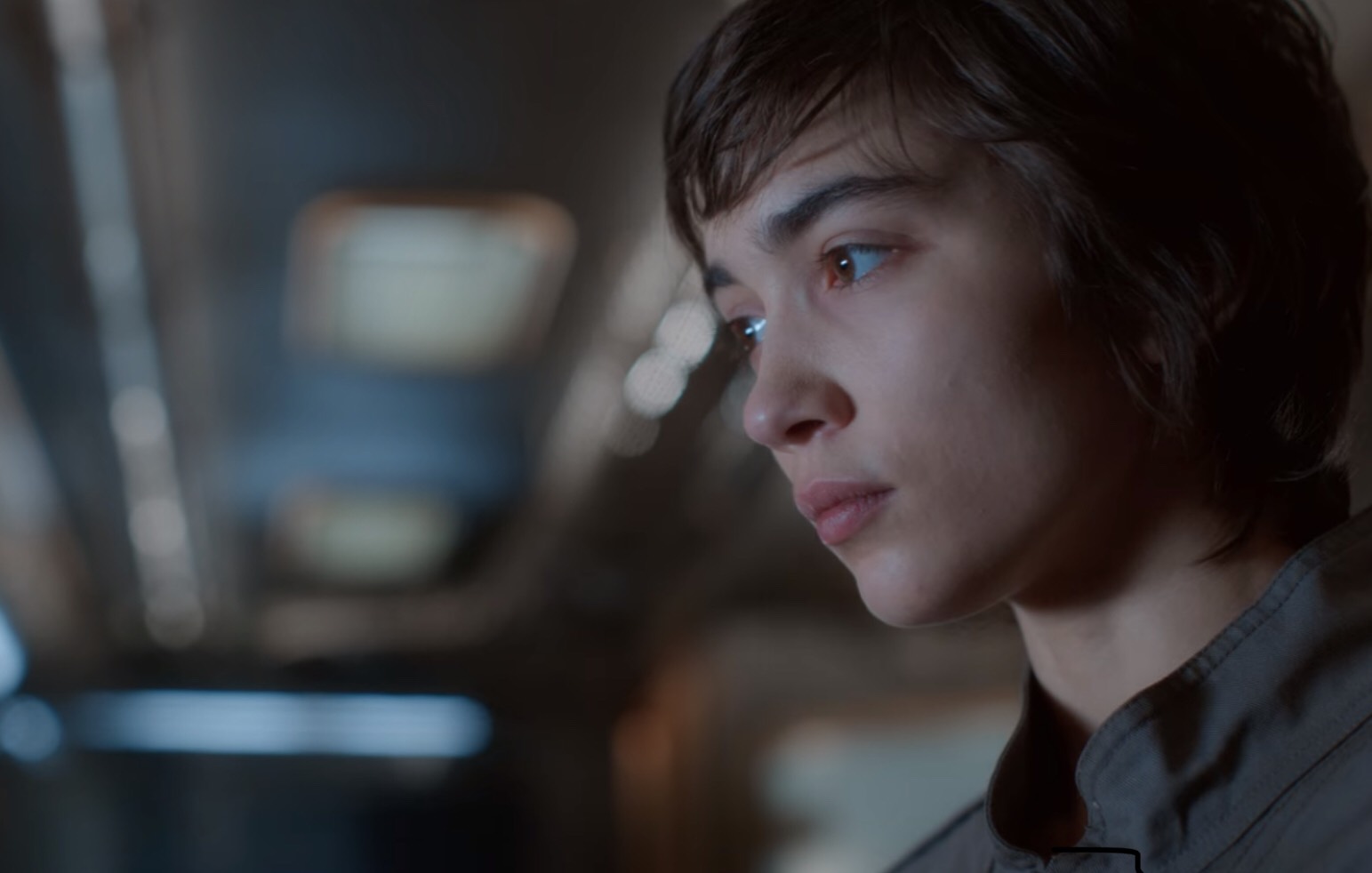
The latest updates, reviews and unmissable series to watch and more!
You are now subscribed
Your newsletter sign-up was successful
Want to add more newsletters?
This post contains spoilers for Snowpiercer.
Committing terrible acts in order to survive is intrinsic to life on Snowpiercer and the two-part finale pushes those boundaries further. Layton (Daveed Diggs) asks Ruth (Alison Wright) if she is “willing to sacrifice everything” in order to wrestle control back from the man she used to worship, and this question is one faced by many. Alliances have shifted over the second season, which saw Big Alice mark its arrival with a hostile demand for products like high-end scotch, eggs, and morphine. The first new face the passengers of Snowpiercer see is familiar to some. Melanie’s (Jennifer Connelly) now 15-year-old daughter Alex (Rowan Blanchard) proves that after all this time apart she still carries herself with the same authority as her mother. The path to forgiveness has not been an easy one and even with this protracted time apart — when Melanie left for a solo mission in Episode 3 to save humanity — Alex has finally come to understand the sacrifice her mother made seven years prior. Snowpiercer is at its best when it digs into these elements and this is no clearer than with the teenager’s shift from anger to empathy — and all the messiness in-between.
Melanie’s transgressions are long and while this character should not be pardoned for the way she ran Snowpiercer, her choice to ditch Wilford (Sean Bean) was wise. Manipulation is a weapon he deploys without thought, from the physical harm he has done as a method to wield control to the little regard he has for the passengers’ survival. Alex’s subordination has been bubbling for the last few episodes, coming to a head at the exclusive dinner when she reveals the census is to determine the worth of each person on board. A mass cull took place on Big Alice when the self-proclaimed leader realized 200 passengers were a drain on the resources. While this Wilford is far more interested in interacting with the passengers than the Ed Harris portrayal in the 2013 film, the decision to keep the numbers down is something they share. The revolution that takes place in Bong Joon Ho’s movie is part of Wilford’s overall scheme (this is where the TV show differs) but the end result is still the same.
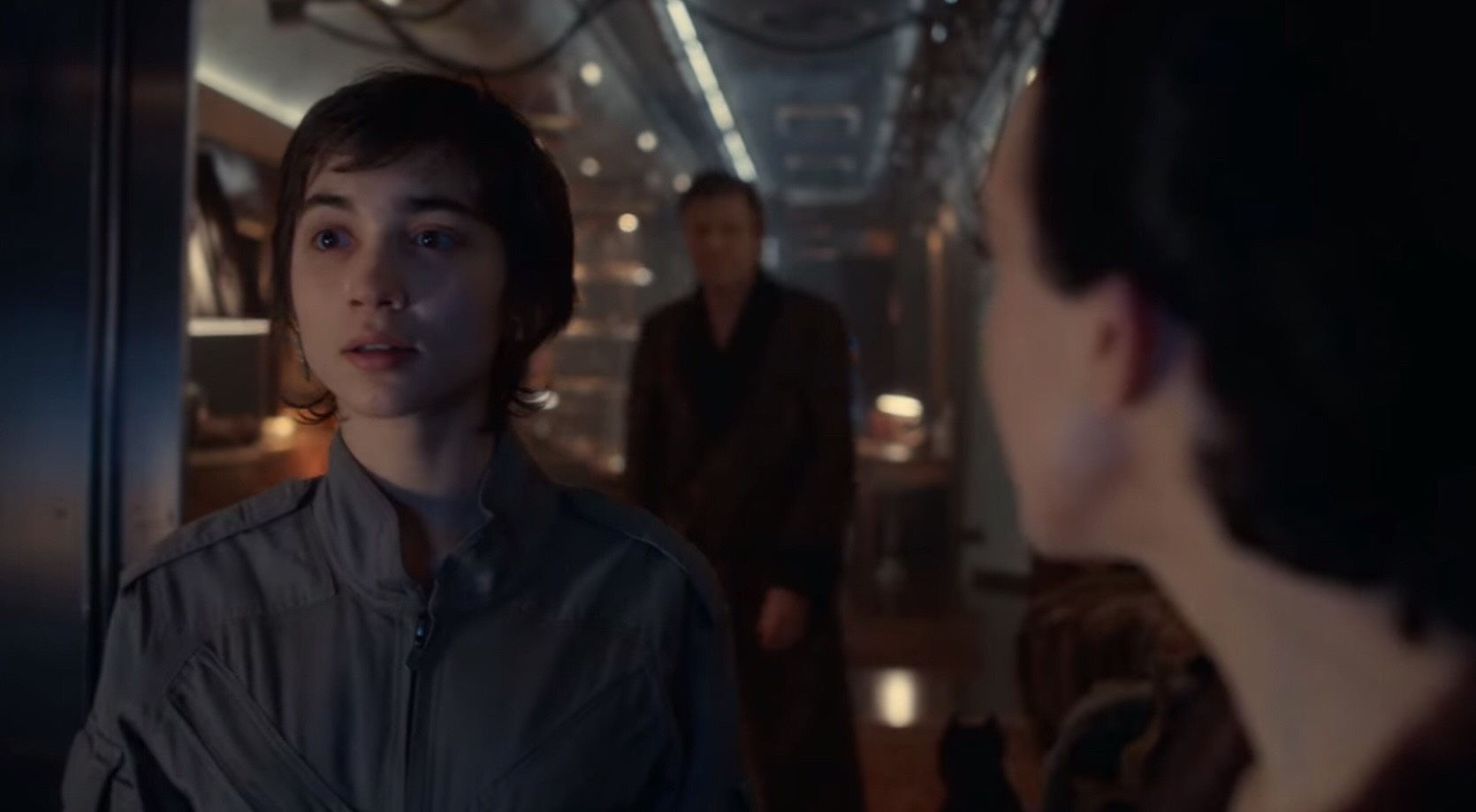
After years of molding Alex, Wilford’s expectations are she will fall in line. Even if she doesn’t obey his orders, the brig awaits but that threat doesn’t hold much sway. “Don’t worry, I’ve been there before,” she remarks before offering one final warning telling Ruth he is “coming for you,” Melanie asked her former friend if she would look out for Alex and this is a two-way street. Sewing seeds of doubt is just as potent as a promise and the head of hospitality has been seeing the world in a new light this season. Falling on the right side of history doesn’t excuse past crimes and Ruth hasn’t always been open to an equal world view. She can’t undo the pain she inflicted on the Tallies, but she can avoid repeating the cycle. Despite her reverence for Wilford, she turns down his cushy job offer and ends up slinging sewage with Layton as punishment. They used to be on opposing teams but now they are fighting (quite literally) side-by-side.
Some alliances have always been there but Alex has taken time to fully disavow her father figure. The mocking of her relationship with Melanie (as well as the supposition she is dead) during the puppet show preview is cruelty for the sake of it. It is at this moment that Alex also realizes that LJ (Annalise Basso) might have positioned herself as BFF material, but she is more interested in sucking up to Wilford than looking out for her friend. The latter is underscored when LJ uses her knowledge of Melanie’s dishonest face and accurately judges Alex to be lying to Wilford about the engine room conversation. The similarities between mother and daughter go beyond the innate knowledge regarding the train. “After everything, you are so much more her than me,” Wilford spits at his surrogate daughter before revealing she is little more than a tool to use against Melanie. Underestimating his charge, Alex lashes out by using her hidden razor to slash his throat. This act of bloody defiance has been a long time coming and the build-up to this moment has been expertly laid out from that first shot of her with this weapon of choice in the second episode. Mother and daughter are similar but this is not a case of Alex becoming a carbon copy of Melanie and she has her own agency and point of view.
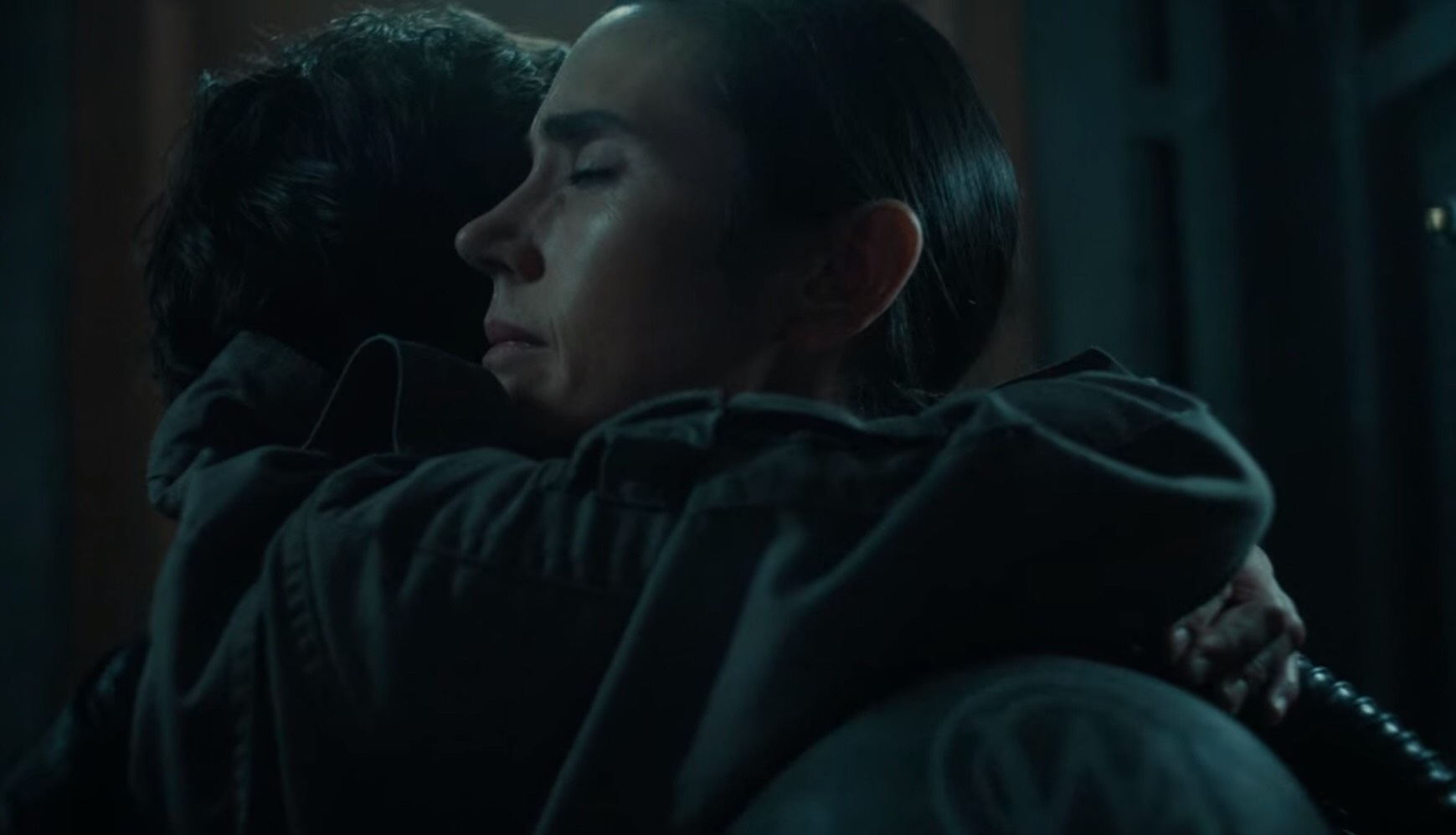
Despite spending very little screen time together, the writers and actors nailed the few scenes early on to establish the connection. There is no quick fix to what Alex perceives as her mother abandoning her — something Wilford uses against his former protégé — and Melanie only has a small window to undo years of negativity. Their emotional goodbye in “A Great Odyssey” packs a punch that sees the teenager lose her bravado and unmask her vulnerability. Growing up in this cold environment has not frozen her heart and she is still looking for comfort. It is also in Melanie’s absence that Alex learns about her mother’s newly formed partnership with Layton and the desire to create a better world beyond the lifesaving locomotive. Getting the coveted voiceover introduction slot in the finale, Alex sums up her arc:
“I was 10 when the world became a train. Wilford said he was my family now — Daddy Dubs — and I would lead the train with him. Leaders were lonely, you couldn’t trust anyone. So I was the island of Alex and no one ever came ashore. Until we finally caught up to Melanie and I saw Snowpiercer and met her people. That’s when Dubs got weird.”
The latest updates, reviews and unmissable series to watch and more!
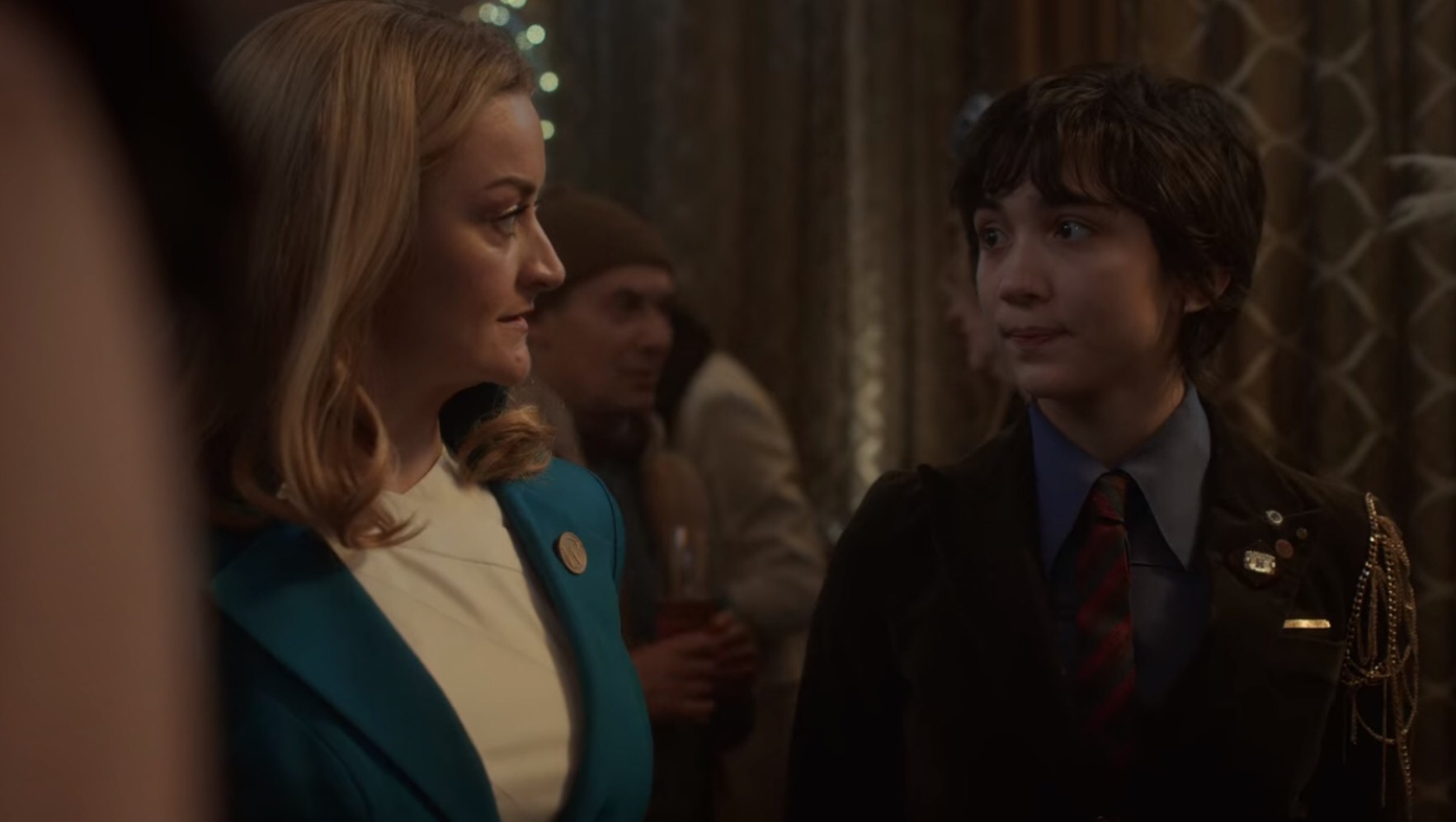
The TL;DR version of Alex’s story is succinct in its examination of how she went from Wilford’s pet engineer to a young woman willing to risk it all. Fissures formed early and even though she destroyed Melanie’s snow water sample, she was also impressed with how her mother ensured the trains couldn’t be disconnected. Melanie’s choice to head out into the wilderness didn’t confirm she was abandoning her daughter once more, but instead, revealed the first time she left wasn’t a selfish act. She is risking the most important relationship to save humanity and Alex will not renounce her mother at the behest of Wilford. The only time she plays along in the finale to his whims is to distract from the larger scheme that is underway. Wilford refuses to consider picking up Melanie and that is the last straw for his surrogate daughter. Denying the hope for the future is perhaps even more abhorrent to Alex than the thought of her mother being left behind.
Past and present collide in Alex’s voiceover and she comments that over the course of the season she has learned that “freedom has to be messy” and Layton’s leadership is predicated on listening to others. This is not the way of Wilford, but rather than drown out the screams of Wilford’s misdeeds with music, she is no longer turning a blind eye to his cruelty or an alternative vision for the future. “I saw women with power and I saw them keep my mother’s dream alive,” she says in reference to Ruth and Bess Till (Mickey Sumner) and her limited time with the crew leading the revolution. Josie (Katie McGuinness) is another name that belongs on this list as part of the splinter group who have gone to find Melanie out in the wilderness. What they find is disheartening regarding her survival but no physical body means no death. “You are my hope, Alex,” Melanie wrote in the note she knew would be found by her tenacious daughter. Like other dystopian teenager heroes before her (like Katniss Everdeen), vulnerability and strength are intertwined and the reason this archetype exists is it is incredibly effective. Blanchard’s performance sells this evolution and the spectrum of emotions that have led her to break the cycle she was born into. Pushing the story forward and changing up the dynamic is part of Snowpiercer's success in Season 2. The splinter group set-up is an enticing prospect for its return, particularly now Alex thawing in an environment free from Wilford.
Emma Fraser spends most of her time writing about TV, fashion, and costume design; Dana Scully is the reason she loves a pantsuit. Words can also be found at Vulture, Elle, Primetimer, Collider, Little White Lies, Observer, and Girls on Tops. Emma has a Master’s in Film and Television, started a (defunct) blog that mainly focused on Mad Men in 2010, and has been getting paid to write about TV since 2015. It goes back way further as she got her big start making observations in her diary about My So-Called Life’s Angela Chase (and her style) at 14.


